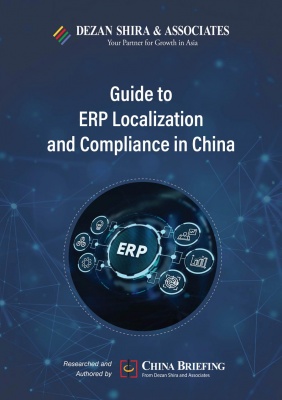
Our collection of resources based on what we have learned on the ground
Complying with Indonesia’s Halal Certification Regulation – What You Need to Know
Q&AIndonesia, home to the world’s largest Muslim population, has emerged as a pivotal player in the global halal industry. Targeting to become the world’s global Halal hub, the Indonesian government strives to ensure the availability of Halal products in the market.
In a significant move, the Indonesian government introduced Government Regulation 39 of 2021 (“Halal Certification Regulation”) on the implementation of Halal Product Assurance, mandating Halal certification for a wide range of goods and services. In addition to the Food and Beverage industry, this regulatory framework also encompasses consumables sectors, such as cosmetics, drugs, medical supplies and devices, clothing, office supplies, and household appliances – including their ancillary businesses. To comply with this regulation, each product classification must obtain Halal certification within the stipulated timeframe, spanning from October 2024 to October 2034.
Failure to comply with Halal Certification Regulation, businesses may be subject to administrative sanctions in the form of a written warning, administrative fine, revocation of halal certificate, and withdrawal of goods or services from the market.
In this Q&A session, Business Advisory Service Assistant Manager Hardy Salim and Business Intelligence Senior Associate Tsamaratul Qalbi answer frequently asked questions regarding the Halal certification in Indonesia.
To watch our webinar on Halal certification, please click here
Are non-halal products still allowed to enter Indonesia? How are the regulations affecting the non-halal products?
Yes, non-halal products are still allowed to enter Indonesia. Non-halal products shall include non-halal labels or descriptions. The non-halal description can be in the form of a picture, sign, and/ or words included on:
- The package of the product
- A certain part of the product
- Certain places of the product
In the product ingredient, the prohibited ingredients must be printed in different colors. Further, the non-halal description must be easy to see and read and not easily erased, removed, or damaged. Non-compliance with these requirements may result in administrative sanctions.
Who will do the inspection activities at the production site of imported products?
The inspection activities of the production site of imported products will be conducted by the Foreign Halal Agency (LHLN) which has signed a Mutual Recognition Agreement (MRA) with the Indonesia Halal Product Assurance Organizing Body (BPJPH). Currently, BPJPH has signed MRAs for recognition and acceptance with the following nine LHLNs.
- The federation of Islamic Associations of New Zealand
- The central Islamic Council of Thailand
- Taiwan Halal Integrity Development Association
- NZIDT Limited
- Korea Muslim Federation (KMF)
- Korea Halal Authority
- Islamic Food and Nutrition Council of America
- Halal Conformity Service (HCS)
- Halal Certification Center of Chile - CHILEHALAL
BPJPH also has signed the MRA with other 28 LHLNs to accelerate the completion of the LHLN assessment for recognition and acceptance of halal certificates.
In addition, if the country does not have an LHLN recognized by BPJPH, the inspection activities will be carried out by the registered Indonesian Halal Inspection Agency (LPH), in accordance with the Halal Registration Regulation.
Do imported products need to be certified as halal in the country of origin? Is it possible to apply halal certification in Indonesia?
This depends on the Halal institution in the country of origin. Imported products that have been certified halal in the country of origin can be recognized and accepted in Indonesia if the product is certified by the Foreign Halal Institute (LHLN) referred in answer 2.
Having said that, the Halal Certificate issued by LHLN does not need to apply for another Halal Certificate in Indonesia. However, for Halal Certificate with categories of raw materials, additional ingredients, auxiliary materials, and slaughtered products issued by LHLN must be registered first before being distributed in Indonesia.
If BPJPH does not recognize the local country's foreign halal institution, halal certification for imported products must be processed in Indonesia under the Halal Registration Regulation.
How do businesses show compliance with the halal regulations during the shipping process for imported goods?
After registering and receiving a halal certificate, businesses shall include the halal logo in the container box for shipping purposes to show that the logistics or distribution activities conducted by the businesses are compliant with the Halal Certification Regulation. Businesses are advised to choose shipping and logistics companies that adhere to Indonesia’s Halal regulations.
It is noteworthy that this requirement may apply to distribution or logistic activities for the distribution of food, beverage, medicine, or cosmetic-related products.
Should you require further assistance in securing Halal certification for your business, please feel free to contact us. Our dedicated team stands ready to support you.
< BACK TO LIBRARY
Subscribe to receive latest insights directly to your inbox
Subscribe Now


